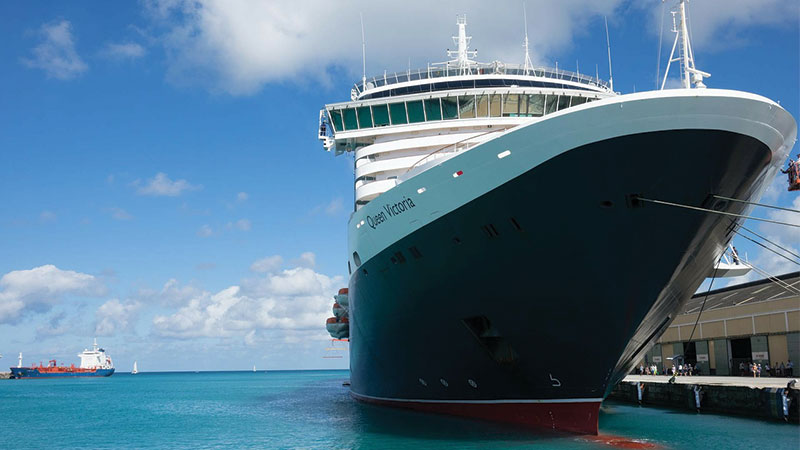By Mike Jarrett
New berth under construction
Barbados is in the process of constructing an additional 300 metres of berthing capacity at its main port.
When the new Berth 6 is brought into service, it will have a depth alongside of 15 metres and a loading capacity of up to 55 tons/m2. Nine acres of reclaimed land will be asphalted to create a container storage zone adjacent to the new berth. With this completed, Barbados Port Inc. (BPI) would have moved closer to achieving one of its main objectives of separating cruise ship activities from maritime cargo operations.
The Port had previously extended its quay wall to include Berth 5. This serves as accommodation for two mega cruise liners simultaneously along Berths 2 and 3, as well as additional capacity to accommodate large cargo vessels. Equipment upgrades included the installation of a new Panamax Liebherr gantry crane, capable of lifting two 20’ containers simultaneously. This crane has a reach of about 37 metres. Other equipment included (five) electric drive straddle carriers and diesel-electric lift-trucks.
The Port has also moved to eliminate customer congestion when clearing personal effects. Using internet-based technology that allows customers to track the movement and processing of their cargo, BPI has made significant progress streamlining the delivery of personal effects to customers. The system allows users to submit pertinent security information for access to the port prior to arrival.
If cargo has not been processed, the system transmits an appropriate notification (via email or text message). This technology has allowed BPI to optimise the volume of customer traffic, as persons are only allowed onto its premises after the cargo has been electronically documented as ready for delivery.
This user-friendly portal to facilitate the delivery of personal effects was developed by BPI’s Management Information Systems (MIS) Department with the support of the Security Services and Terminal Operations Departments. The MIS Department services the operational needs of all departments, which include maintaining Online Ship’s Identification Systems, optimising Berthing Systems, and providing network support for surveillance systems, financial reporting, training, and website management.
Training continues to be a top priority at the award-winning port. The competency-based Port Worker Development Programme, implemented in 2000, was designed to ensure that all members of staff received expert training in their respective fields. Under this programme, over 100 employees, including Stevedoring Coordinators, Dockers, Equipment Operators and Cargo Supervisors received Caribbean Vocational Qualification (CVQ) and National Vocational Qualification (NVQ) training for certification in Stevedoring Operations, Supervisory Management, and Occupational Safety and Health.
Several initiatives were implemented, aimed at improving visitor experience and encouraging cruise passengers to excurse ashore. In this regard, the main entrance to the Port and the Police outpost was completely refurbished; a bus shelter was also constructed. The Main Gate project was completed five weeks ahead of schedule, thus allowing the Port to accommodate a record number of cruise passengers. The construction of the new bus shelter created dedicated taxi and tour lanes, thus improving traffic flow.
The Port logged 506 cruise calls in calendar year 2017; the record is 530 cruise calls. On December 29, BPI surpassed its record of 812, 863 for cruise passenger arrivals. Total passenger arrivals for 2017 were 827,486, up 13.2% from 731,137 in 2016.

